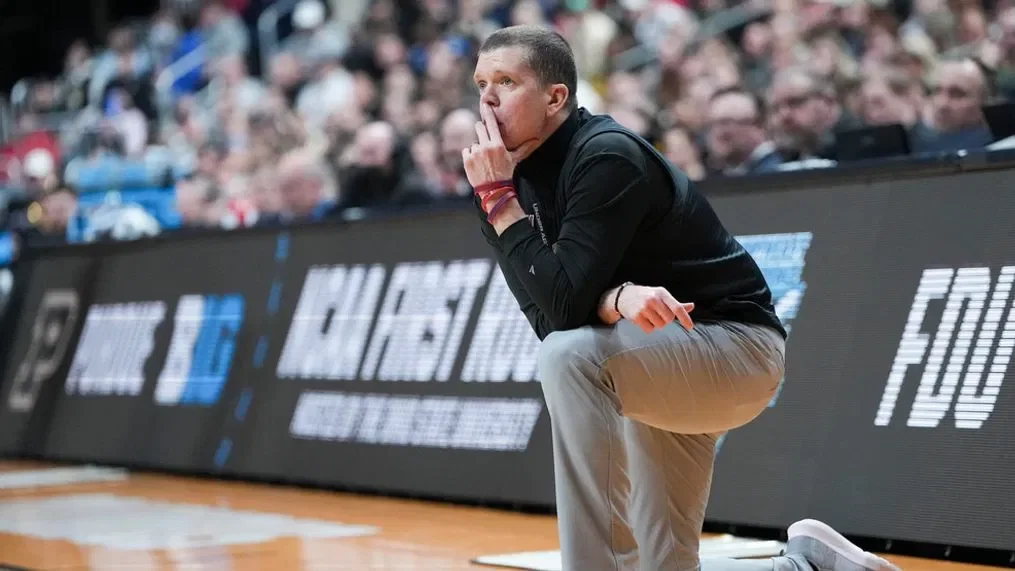April 21, 2024
Sports Gambling has no Regulations, leading to Coaches and Athletes being Treated like Pawns on a Chess Board
Earlier last Wednesday morning, I was walking through the quad on the UNC campus when an alert from ESPN popped up on my phone that read, “NBA issues lifetime ban to Raptor’s Jontay Porter for violating league’s rules on gambling.” My head began to swirl with questions…
Why does it seem professional sports leagues have taken a stronger stand against sports gambling than against cases of domestic violence or sexual abuse?
If sports gambling is becoming a major issue at the professional level, then how is the impact being felt at the collegiate level where athletes have much more face-to-face public exposure?
Has sports gambling begun to threaten the integrity of sports as a whole?
None of these questions presented clear-cut solutions. It will likely be years before we can answer or resolve any one of these questions. However, I believe the very least professional and collegiate leagues can do is implement measures to protect athletes from sports gambling negatively impacting their lives.
When the Supreme Court overturned the Professional and Amateurs Sports Protection Act in 2018, which had effectively outlawed sports betting in the U.S., sports and gambling came crashing together into one. The NCAA took their first protective measure against sports betting since this Supreme Court ruling three weeks ago, when it was announced they would push for states with legal sports wagering to ban prop bets on college athletes.
Prop bets, short for proposition bets, allow gamblers to wager on statistics a player will gather during a game rather than the final score.
"Sports betting issues are on the rise across the country with prop bets continuing to threaten the integrity and competition and leading to student athletes and professional athletes getting harassed,” said NCAA President Charlie Baker in a statement posted on social media.
This was a smart move by the NCAA, and a move they should have taken years ago. College athletes are much more available in the community when they attend classes each day. This allows for much more of an opportunity for the athletes to be pressured into performing poorly during a game in the effort of fulfilling someone’s sports bet.
In an effort to learn more about how college coaches and athletes have been affected by the current sports gambling mania, I conducted exclusive interviews with Iona men’s basketball coach Tobin Anderson and Boston University men’s basketball coach Joe Jones. Anderson, who coached 16-seed Fairleigh Dickinson to a historic upset win over No.1 Purdue in the 2023 March Madness Tournament, was adamant about the matter.
“I hate it. I hate the whole gambling thing,” said Anderson. “I think it’s terrible, especially now with NIL and the money out there. Kids have more money, kids can bet more money, and if it becomes a bigger issue, the horse will be out of the barn, and it's going to be hard to get back in.”
Jones took a similar strong stance as Anderson.
“It's really scary man,” said Jones. “If we have a game and don't cover the spread, I'm getting attacks on social media. We lost a game to Holy Cross, and I got a bunch of messages. That was the first time I ever got random people on social media ripping my ass. And it was only because you know they lost the bet.”
Cleveland Cavaliers head coach J.D. Bickerstaff made headlines a few weeks ago when he said gamblers had acquired his phone number and were sending him messages about his kids and his home address, comparable to Jones’s recount. For people to think that coaches have control over how many points their team wins or loses by seems utterly irrational. Gamblers need to begin employing reason, and leagues also have to add safety precautions so that gamblers cannot so easily come in contact with coaches.
Anderson mentioned that it’s not just coaches who are getting bombarded by the public.
“I hate to see the spreads,” said Anderson. “Like last year at FDU, if we lost a game and then didn’t cover the spread, our players were getting direct messages and phone calls, all because of the gambling stuff.”
What worries me the most is what is going to stop someone from reaching out to their friend who plays basketball or football, and telling them that they lost a thousand dollars because they didn’t play well. What will the player think when their friend starts begging them to miss their first two free throws in their next game so that they can make rent for the month?
The reason I got so invested in reporting and writing about sports in the first place was the competitive integrity that it possesses, unlike going to the theater to see a play or watching a movie or television show. In all honesty, I would hate to see sports betting interfere with that fundamental principle. Banning prop bets in college athletics is a start, but much more must be done if we want to continue enjoying sports because of the suspense and excitement that comes with the unpredictability of the outcome.
